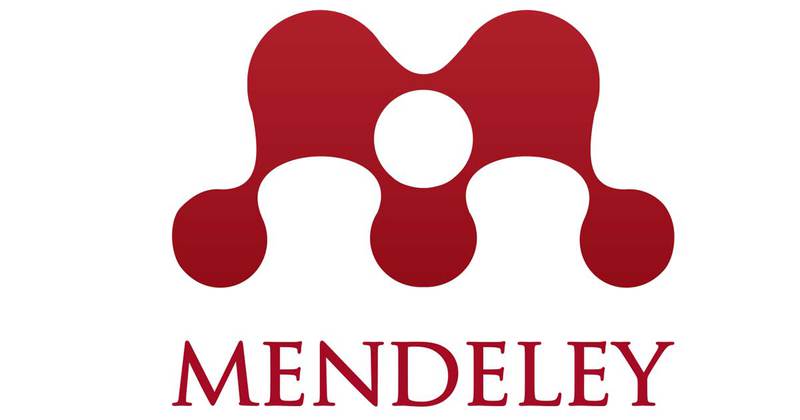The Role of Family for Under-aged Working Children
(Case study: Child Busker on Balong Cangkring Crossroads Mojokerto)
DOI:
https://doi.org/10.22219/jpa.v7i2.27074Keywords:
child labor, family role, street childrenAbstract
This study aims to explain the role of the family in child labor that occurs at the Balong Cangkring intersection in Mojokerto, seeing the phenomenon of child labor as a public concern for the weakening of human resources in the future era for the next generation. It is necessary to re-reflect the awareness of the role of parents that this child labor system becomes a capitalist system as the growth of family economic capital. This research method uses a qualitative case study analysis approach, the data collection methods used are interviews, observation and documentation. The results of the study show that child labor as buskers, car glass cleaners, hawkers that occur at the Balong Cangring intersection is influenced by an environment far from civilization, human resources and education which are difficult for children to access due to the weakening role of parents. The lack of the role of parents towards children and the pattern of sustenance that is not optimal so that child labor still occurs in Mojokerto. Human capitalism against child labor in Balong Cangkring is carried out by parents to earn money by employing underage children at school age.
Downloads
References
Akbar, Taufan Heradansyah. (2020). Peran Save The Childern dalam Melindungi Pekerja Anak di Kawasan Industri Sepatu CIbaduyut Bandung Jawa Barat pada Tahun 2017-2019. Jurnal Academia Praja. Vol.3, No.2.
Atmanti, HD (2017). Kajian Teori Pemikiran Ekonomi Mazhab Klasik dan Relevansinya pada Perekonomian Indonesia. Jurnal Ekonomi & Bisnis , 2 (2), 511-524.
Al.Tridhonanto dan Beranda Agency. (2014). Mengembangan Pola Asuh Demokrasi. Jakarta:Gramedia. h. 16
Astriadi, & Asti, Mulham jaki. (2022). Peran Pemerintah terhadap Pekerja Anak di Wilayah Kota Makassar: Prespektif Undang-Undang Perlindungan Anak dan Hukum Islam. SHAUNTUNA: Jurnal Ilmiah Mahasiswa Perbandingan Mazhab. Vol.3. Issue.1. DOI: 10.24252/shautuna.vi.24517. p.353-364.
Avianti, Annisa & Martua Sihaloho. (2013). Peranan Pekerja Anak di Industri Kecil Sandal terhadap Pendapatan Rumahtangga dan Kesejahteraan Dirinya di Desa Parakan. Kecamatan Ciomas, Kabupaten Bogor, Jawa Barat. SODALITY: Jurnal Sosiologi Pedesaan. Vol.01. No.01. hlm.10-25.
Hendrawan, D. (2018). Alienasi Pekerja Pada Masyarakat Kapitalis Menurut Karl Marx. Arete , 6 (1), 13-33.
Ibrahim, Z. (2016). Eksistensi serikat pekerja/serikat buruh dalam upaya mensejahterakan pekerja. Jurnal Media Hukum , 23 (2), 150-161.
L Johnson . (2010). Buku Ajar Keperwatan Keluarga. Yogyakarta : Nuha medika.
Lubis, Hasrul Mahadi., & Saleh, Arifin. (2020). Pekerja Anak Sebagai Buruh Batu Bata di Kelurahan Silandit Kota Padang Sidimpuan. Jurnal Intervensi Sosial dan Pembangunaan (JISP). ISSN: 2721-4311. p.29-33.
Perdana, Novrian Satria. (2018). Dinamika Pekerja Anak: Studi Kasus Pekerja Anak pada Sektor Informal di DKI Jakarta. Atikan: Jurnal Kajian Pendidikan. Vol.8. No.1. p.27-40.
Robert, E Slavin. (2010). Cooperative Learning Teori, Riset dan Praktik. Bandung:Nusa Media.
Rustina, R. (2022). Keluarga dalam kajian Sosiologi. Musawa: Jurnal Studi Gender , 14 (2), 244-267.
Sadjali, MG, Al Atok, AR, & Awaliyah, S. (2021). Profil Anak Jalanan di Daerah Bekas Lokalisasi Balong Cangkring Mojokerto. Jurnal Rontal Keilmuan Pancasila dan Kewarganegaraan , 7 (1).
Safrudin, Aziz. (2015). Pendidikan Keluarga: Konsep dan Strategi. Yogyakarta: Gava Media.
Santika, I Gusti Ngurah., Kartika, I Made., & Wahyuni, Ni Wayan Rini. (2019). Pendidikan Karakter: Studi Kasus Peranan Keluarga terhadap Pembentukan Ksrakter Anak Ibu Sunah di Tanjung Benoa. Jurnal Kajian Pendidikan Widya Accarya FKIP Universitas Dwijendra. ISSN: No. 2085-0018. p.56-66.
Surahman, Buyung. (2021). Korelasi Pola Asuh Attachement Parenting terhadap Perkembangan Emosional Anak Usia Dini. Bengkulu: CV. Zigie Utama.
Supeno, E. (2012). Evolusi Pemikiran Manajemen: Sebuah Tinjauan Wren dan Bedeian. Jurnal Jejaring Administrasi Publik. Th IV. Nomor , 1 .
Suyanto, (2010). Model Pembinaan Pendidikan Karakter di Lingkungan Sekolah. Jakarta: Dirjen Dikdasmen Direktorat Pendidikan Dasar dan Menengah Kementerian Pendidikan Nasional.
Suyanto, Bagong. (2020). Masalah Sosial Anak. Jakarta: Kencana. hal 111
Tirtarahardja, Umar. (2005). Pengantar Pendidikan. Rineka Cipta.
Triono, Agus. (2014). Perlindungan Hukum bagi Anak di Era Otonomi Daerah: Studi tentang Peran Pemerintah Daerah dalam Mengatasi Masalah Pekerja Anak. Jurnal Sosiologi, Vol.16, No.2, hlm.139-154.
Ulfa, Mutia., & Na'imah. (2020). Peran Keluarga dalam Konsep Psikologi Perkembangan Anak Usia Dini. Aulad: Journal on Early Childhood. ISSN: 2655-4798 (Printed); 2655-433X (Online). p.20-28.
Yoga, D. S., Suarmini, N. W., & Prabowo, S. (2015). Peran keluarga sangat penting dalam pendidikan mental, karakter anak serta budi pekerti anak. Jurnal Sosial Humaniora (JSH), 8(1), 46-54.
Downloads
Published
How to Cite
Issue
Section
License
Copyright (c) 2024 Iik Ariyanti, Budi Harianto

This work is licensed under a Creative Commons Attribution-ShareAlike 4.0 International License.
Authors who publish with Jurnal Perempuan dan Anak (JPA) agree to the following terms:
- For all articles published in Jurnal Perempuan dan Anak (JPA), copyright is retained by the authors. Authors give permission to the publisher to announce the work with conditions. When the manuscript is accepted for publication, the authors agree to automatic transfer of the publishing right to the publisher.
- Authors retain copyright and grant the journal right of first publication with the work simultaneously licensed under a Creative Commons Attribution-ShareAlike 4.0 International License that allows others to share the work with an acknowledgment of the work's authorship and initial publication in this journal.
- Authors are able to enter into separate, additional contractual arrangements for the non-exclusive distribution of the journal's published version of the work (e.g., post it to an institutional repository or publish it in a book), with an acknowledgment of its initial publication in this journal.
- Authors are permitted and encouraged to post their work online (e.g., in institutional repositories or on their website) prior to and during the submission process, as it can lead to productive exchanges, as well as earlier and greater citation of published wor (See The Effect of Open Access).
This work is licensed under a Creative Commons Attribution-ShareAlike 4.0 International License







